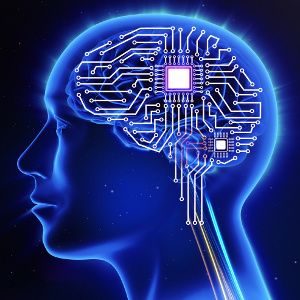What is cognitive computing?
Have you ever wondered what it would be like to work alongside an intelligent mechanism that can provide positive results meeting business requirements, whilst additionally foreseeing the future of software?
Cognitive testing is quite innovative in comparison to today’s testing procedures, with an objective of leveraging machine learning, AI, and other cognitive computing techniques. Computers can now imitate a human brain and collect results from existing data and patterns through the use of underlying software. Throughout the years we have seen major revolutions within IT; right now, it is AI presenting its potential to the market.
Today numerous new technologies compete, and it becomes challenging for us to determine which one to buy or use for a given project. It’s evident that smart computers surround us, this is driven by innovative technologies in big data, business intelligence and data analytics and not to forget machine learning.
In this blog, I aim to cover what is involved with cognitive testing, the benefits of this testing, what sectors currently use this, available platforms, if cognitive intelligence will take over a tester’s role and the future of cognitive testing.

The benefits of cognitive testing
Cognitive testing is quite innovative and comes with some great benefits which may not only provide the best results for a business but also provide the best to the end users. Firstly, it’s very adaptive to any change and requirements. Testers can use this to plan and involve it as a part of their testing process. It also Interacts with users to define test requirements and may also interact with other processors, IoT devices, cloud services, and people. Furthermore, this feature helps the system remember previous interactions and returns suitable information and in turn allows a testing sequence to be defined. Cognitive intelligence renders and forecasts new computable problems. It addresses complex situations that are characterized by ambiguity and uncertainty, which could have been missed by us as humans. Consequently, it helps improve human decision making which means fewer defects, efficiency and a better collaboration between the development and testing teams.
What sectors use cognitive testing?
Cognitive testing applies across various industry sectors today. However, to include cognitive testing as a process within your SDLC, agile and/or DevOps is vital to adopt. Competitive and high-tech industries are more likely to adopt cognitive solutions because this method allows them to stay ahead in their field and provide results that other industries are incapable of offering.
-Telecom and financial services. Financial services use cognitive systems in fields such as Know Your Customer, credit ratings, loan decisions and wealth management for portfolio optimization
-Healthcare, with exceptions such as trying to make decisions about a patient’s health are limited, as this is quite a heavily regulated and sensitive area
Currently the following platforms are readily available, OpenAI, Google Deep Mind and IBM Watson.
Will machine learning take away my job?
The answer to the question above is a big NO. Testers are required to stay in touch with the test effort, moreover they are required to take controlled actions to ensure the objectives and strategies are delivered.
We as testers should be present reviewing the results on the interface, providing recommendations and feedback to the development team as well as the business.
The future of cognitive testing
Given the pressures of the industry, it is visible that the adoption of cognitive technologies is driven by the potential for increased revenue, lower costs, faster time-to-market, improved competitive positioning, and enhanced customer experience.
As a software tester, I have been involved in many automation projects. It’s a great advancement to bring automation into the software testing industry, although I strongly believe technologies such as AI, machine learning will enable testing teams to test smarter and faster and lead to an innovative way of testing. Cognitive testing uses heuristics to predict defects, to measure system performance, and to optimize the test coverage based on assessed risks.
AI is the next big thing in testing, but it won’t replace humans. The testers working alongside AI can quickly revolutionise the way we test today. Lastly, I must mention that the future seems very bright with tech-savvy individuals and intelligent technologies.

